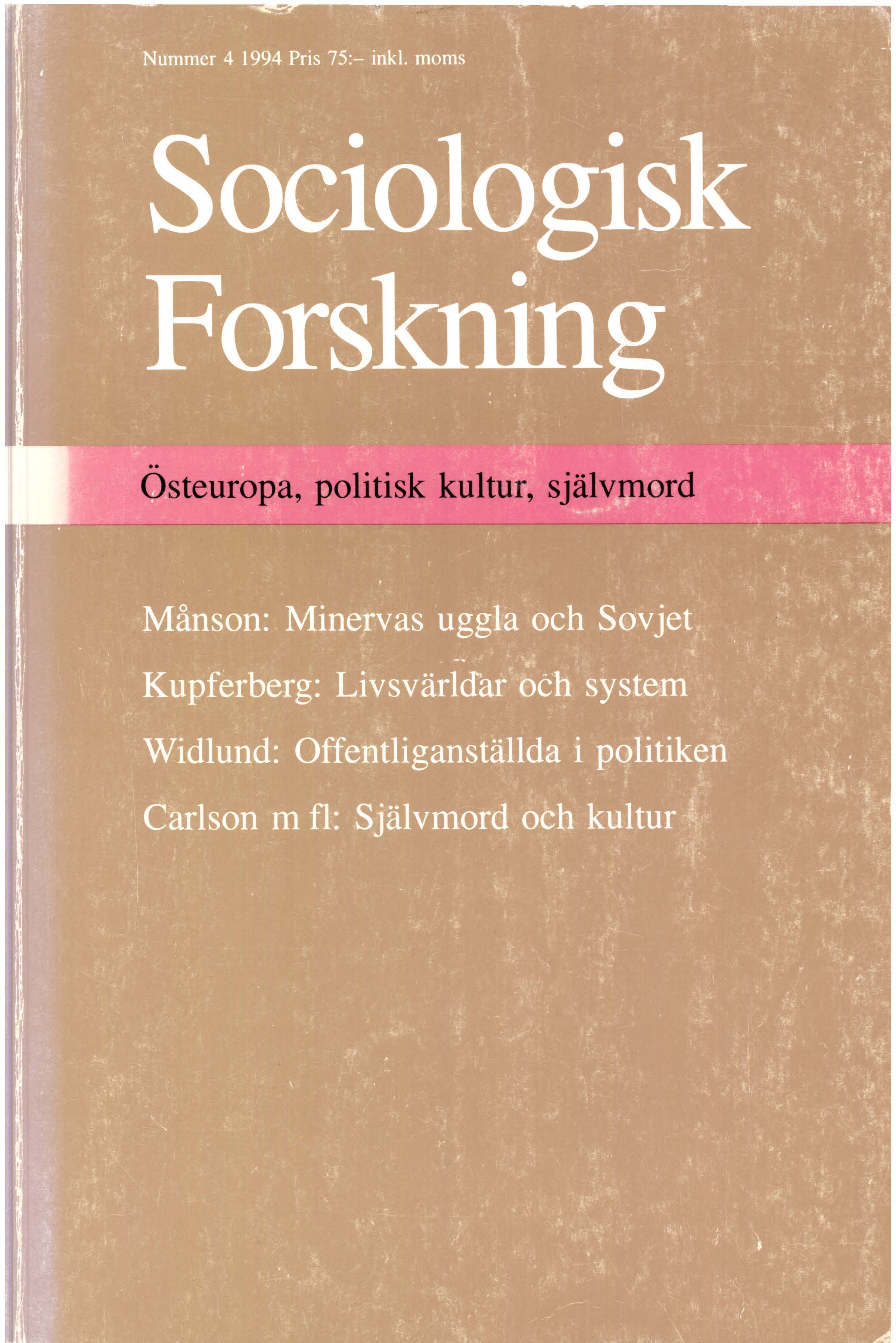Minervas uggla och Sovjetunionens fall
DOI:
https://doi.org/10.37062/sf.31.18621Abstract
The Owl of Minerva and the fall of the USSR
Michail Gorbachev’s resignation from the position as president of the USSR in the end of 1991 meant that nearly 75 year of Soviet power in Russia and other countries was over. During these years, the academic knowledge of the Soviet system, its orgins and future, that developed in the West, was namned “ sovietology”. This article takes its point of departure in Hegel’s famous dictum “The Owl of Minerva begins its flight when the shades of twilight have already fallen”, and asks: “Has the dissolution of the USSR changed anythingin our knowledge of the Soviet epoch?”.
The article first presents and discusses how sovietologists and others looked upon the future of the Soviet system, including its potential fall. Then follows a presentation of sovietology’s background in the cold war. In the third part the main directions in Sovietology— totalitarianism and revisionism— are presented. After this follows an overviewof the post soviet debate of the reasons for the dissolution of the USSR, after which the opening question : ”If the dissolution has changed our understanding of the USSR?” is answered with “very little, it seems”.
However, in the last part of the article, some new areas of research are proposed, for example the study of every day life in Soviet Union and the historical and cultural influence on the formation, development and fall of the Soviet system. Finally, it is emphasized that the study of the Soviet epoch now, at last, can be de-ideologinized.
Downloads
Publicerad
Referera så här
Nummer
Sektion
Licens
Allt material i Sociologisk Forskning publiceras med omedelbar öppen tillgång (open access), under Creative Commons-licensen CC BY-NC-ND 4.0.
Allt innehåll i tidskriften är fritt tillgängligt utan kostnad och får för icke-kommersiella syften fritt läsas, laddas ned, kopieras, delas, skrivas ut och länkas. Innehållet får dock inte ändras. När innehållet används måste författare och källa anges. Upphovsrätten till innehållet tillhör respektive författare. Inga publiceringsavgifter tas ut.





